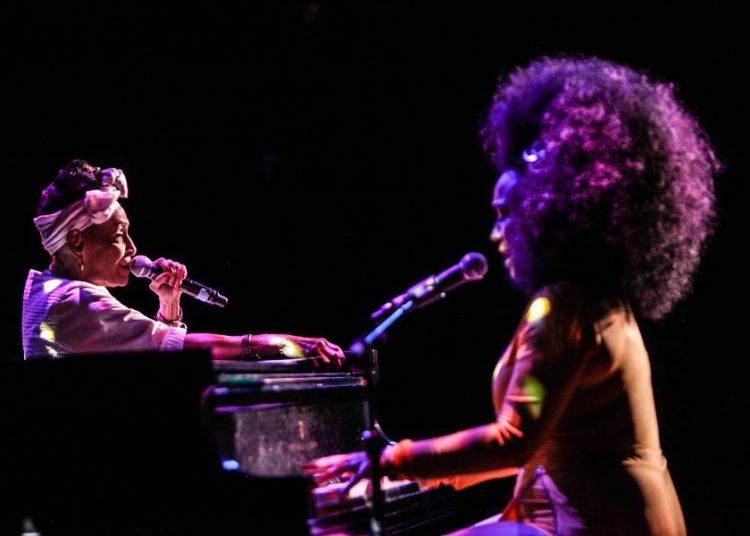The U.S. policy toward Cuba is not exclusively explained by the influence of what is known as the Cuban-American lobby. Historically, its limits have been decided by frameworks like national interest or security questions. In mid-December 1984, for example, the United States and Cuba signed migration agreements under the Reagan administration in a context of tensions marked, among other things, by the Central American conflict and Alexander Haig’s appeal to “go to the source” – that is to say, invading the island. The members of the lobby, and its environs, only found out about these agreements through the media.
More recently, some seemed convinced that the Trump administration was going to reverse all the measures promoted by the previous one. “Pence and Trump,” Mario Díaz-Balart said in November 2016, “have publicly stated – and have privately reiterated to many persons – that they are going to enforce the law and, to enforce it, they are going to eliminate the unilateral concessions given by President Obama to the Castro brothers’ dictatorship.” This, until now, in the end has not occurred.
As is known, the flights and the cruises continued, and the trips with cultural permits have not been forbidden/canceled. In the end, all this led to reactions exonerating the president and blaming the Department of State’s bureaucracy, but at the same time omitting that the matter is rather complicated when it involves not just the representatives of that federal agency but also members of the National Security Council who did not and do not agree with that perspective.
What’s interesting is that situations like that of 1984 can even occur in contexts favorable for the old-school illustrious figures, despite their reentry to the epicenter.
According to El Nuevo Herald, “the night before the White House was planning to announce the new regulations that restrict business with and travel to the island…the Miami Republican legislators in Congress were not informed,” which could certainly not be explained due to the horror of the leaks of this administration, as at times have been made.
“Instead of unconditional applauses,” says the report, “Senator Marco Rubio and Representatives Mario Díaz-Balart and Ileana Ros-Lethinen gave lukewarm statements in which they regretted that the bureaucrats were reluctant to forcefully back the president.”
One could bet that something similar occurs in many other dominions. For example, inside the very Department of State – today characterized for layoffs, resignations and unusual situations -, there are Republican as well as Democrat career professionals who do not agree with rolling back the granting of visas to Cuban writers and artists, those that, in fact, have practically disappeared off the face of the earth.
The notion that something could be up – the lobby members move within the power structures, and they aren’t very good at that -, could be the basis of a letter that four of them (Mario Díaz-Balart, Ileana Ros-Lethinen, Albio Sires and Carlos Curbelo) addressed just a few days ago, in late April, to the new secretary of state, Mike Pompeo, apropos the Artes de Cuba: From the Island to the World event, convened by the John F. Kennedy Center for the Performing Arts, to be held in Washington DC from May 8 to 20. In it they request to analyze “at length and carefully if each one of these Cuban citizens deserves the extraordinary privilege of entering the United States.”
Díaz-Balart was even much clearer on his twit: “Together with my colleagues @roslehtinen @repcurbelo @repsires I have requested information from the @StateDept about the entry to the US of a group of apologists of the regime of the Castros for a festival in @kencen. Propagandists of the regime do not deserve entry to the US.”
It would also seem like a reaction to what Cuban Deputy Minister of Culture Fernando Rojas said last March 28: “It is the first time we are going to the United States with such a numerous official delegation,” he said to the EFE agency with the news that there had been no problems with the visas, given from Mexico as a consequence of the withdrawal of consular officials from the embassy on the Havana Malecón. At least, he said, “until now.”
It is a diverse delegation whose members have been invariably labeled by the Congresspersons of Cuban origin in their traditional codes, which in fact annuls the mix-ups and conflictive dynamics between art and politics. It is typical of a polarized way of thinking and, as a last resort, reductionist.
The result of this operation, proper of the Cold War, consists in divesting of legitimacy artists of proven accomplishments when presenting them as simple shadow plays of the government and, on the other hand, giving them to others who do not have them, or who don’t have them as much as others, but located in the opposition. The last, automatically, grants them a per se aesthetic credit that for many of today’s consciences could at least be considered controversial.
Alicia Adams, the event’s curator, a few days ago said to The Washington Post that this will be the first time that so many Cuban artists have come together for a festival in the United States. She added that they had been working on getting the visas up to the last minute and that they achieved it.
Bridges can always do more than walls.











Comments 1